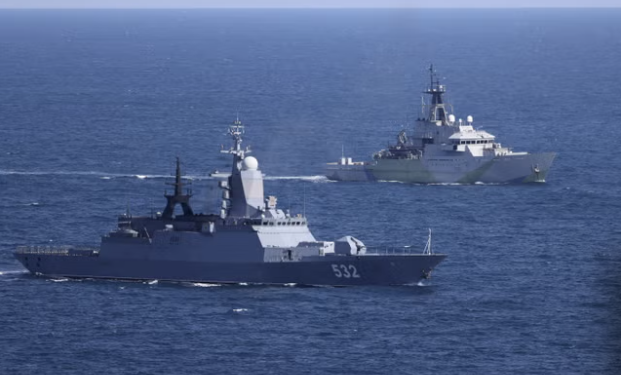The UK is launching a major new initiative to use artificial intelligence to detect and deter Russian activity in the Arctic, a region increasingly seen as critical to both European and British security.
Foreign Secretary David Lammy announced the move during a visit to Iceland, unveiling a joint strategy between the UK and Iceland that will harness AI technology to monitor state actors in the rapidly changing Arctic landscape. As climate change melts ice caps and opens previously inaccessible routes, Russia has intensified its presence, using nuclear-powered icebreakers to assist its war in Ukraine and bypass Western sanctions.
“This is about protecting our national interests and working closely with our allies in the High North, like Iceland and Norway,” Lammy said. “We must stay one step ahead of malign activity that threatens our infrastructure and values.”
The UK believes the Arctic plays a growing role in Russia’s wartime logistics, with nuclear-powered icebreakers—part of a so-called “shadow fleet”—facilitating the transport of oil, gas, and even stolen Ukrainian grain. These routes enable Russia to skirt sanctions and continue funding its illegal invasion.
In a significant blow to Moscow, Lammy revealed that UK sanctions have thwarted President Vladimir Putin’s plans to install a floating repair dock in the Arctic to service these icebreakers.
Under the new strategy, the UK is providing £554,000 from the Integrated Security Fund to the Alan Turing Institute to explore how AI can be leveraged to enhance monitoring and intelligence gathering in the region.
This announcement comes amid renewed criticism of Putin from Western leaders. Former U.S. President Donald Trump branded the Russian leader “absolutely crazy” after a massive overnight assault on Ukraine involving hundreds of drones and missiles. French President Emmanuel Macron welcomed Trump’s remarks, urging they be backed by action, while Ukrainian President Volodymyr Zelensky called for tougher U.S. sanctions instead of further dialogue.
The Arctic initiative underscores growing concern over Russia’s activities in sensitive regions and highlights how emerging technologies like AI are becoming central to national defense strategies.








